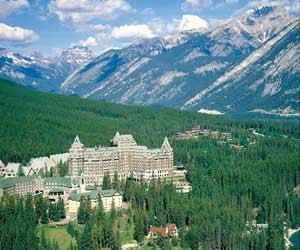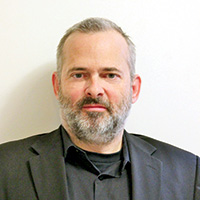Canada has joie de vivre aplenty, but a more compelling element is its special brand of "je ne sais quoi," a beckoning mix of stereotypes, iconography and intrigue. What is it about Canada that appeals?
Stretching from the Atlantic to the Pacific to the Arctic oceans over some 3,850,000 square miles, Canada’s vastness alone makes defining its essence a delightful challenge. If anything, the world’s second-largest country is the sum of its great diversity and differences, threaded together by national pride and colored by an innate good-naturedness and bonhomie, centuries in the making, that puts life and people first. And few countries offer a business and leisure mix as rich as Canada’s, making it the ideal planner’s choice in the present economy.
With the global eye trained on the approaching 2010 Winter Olympics and Paralympics in Vancouver and Whistler, the Canadian Tourism Commission (CTC) has been working hard to define and reinforce Canada’s tourism brand—with great results. In 2008, Canada placed second out of 78 on global brand consultancy FutureBrand’s Country Brand Index, up from 12th place in 2006.
FutureBrand describes Canada as "an exceptional country [with] all of the assets to be a great brand: natural and urban beauty, quality of life, diversity, culture, entertainment, gastronomy, business infrastructure, stability and openness."
Canada’s brand resonance covers commerce, too.
"FutureBrand ranked Canada No. 1 in the world as the easiest country in which to do business," CTC President and CEO Michele McKenzie told the assembly at PCMA’s International Summit, held in Toronto this summer, citing findings of "a welcoming and facilitating business culture" and that "with a robust economy, approachable ethos and significant cost advantages, Canada is open to all languages, cultures and business opportunities."
These revelations are no secret to the meetings and conventions industry. By 2010 and within the space of three years, Canada will have hosted all the major industry conferences, starting with PCMA in 2007, and including MPI; Financial & Insurance Conference Planners (FICP); ICCA; and ASAE. In 2010, Montreal will host PCMA’s Leadership Conference.
"Canada continues to provide a strong alternative for meetings with our vibrant cities on the edge of nature and unique Canadian experiences," says Andrew Clark, vice president for market development at the CTC. "Time after time, groups’ highest attendance is when they come to Canada. We have strong infrastructure with existing facilities, as well as the recently opened Vancouver Convention & Exhibition Centre and the Ottawa Convention Centre under development, opening 2012."
The selling points behind Canada’s brand appeal start with ease of access.
"Canada is one of the easiest international locations to bring a meeting or incentive," says Michele Saran, the CTC’s director of incentive sales development. "Customs brokers ease the stress and perceived hassle associated with bringing a trade show to another country. Planners should ask their CTC or DMO representative for a broker referral, setting the stage for a simple, reasonably priced process."
While a passport is now mandatory, travel to and from Canada is otherwise a snap.
"All major airlines provide easy access to our cities and resorts, most of which are located close to the border," says Robin Thompson, the CTC’s director of meeting and convention sales development. "Plus, if you have international delegates attending your meeting or convention, Canada is easier to access without visas compared to the U.S."
With the perception of Canada as safe, secure and friendly helping to win higher attendance rates, affordability is a bottom-line cornerstone. While not the bargain it once was, the Canadian dollar, coming off its pre-recession surge, still rates a buy, especially when compared with overseas options. Compare hotel, parking and other costs in Vancouver, Toronto and Canada’s other major metros, and, as Thompson notes, "‘Big-city Canada’ is much more affordable compared to ‘big-city USA.’"
Additionally, U.S. meeting and convention clients with more than 75 percent non-Canadian attendees are entitled to a refund of all goods and services tax paid on expenses, including guest rooms, group transportation and most convention-related expenses, with a 50 percent GST refund on group food functions and banquets.
Given worries about public perception regarding incentives, Saran says that old perceptions are now working to Canada’s advantage.
"While incentive houses have long considered Canada a perfect choice, it just didn’t translate as sexy on paper to end-users when compared to European or ‘sun and sand’ options," Saran says.
Courtesy of the financial crisis, the positioning now goes Canada’s way: The message now is that "Canada is an economical way to have a five-star experience," she says.
Experience is the name of the game for meetings in Canada, the country where Saran says "you never need repeat an itinerary."
Indeed, the options seem limitless. From cowboy culture in Calgary to the mountains dramatically backdropping Vancouver to the cobblestone Old World charm of Quebec City, Canada’s major metros uniquely mix modernity with history, culture and the great outdoors, and there is a trove of value-driven secondary markets.
Above all, the brand is invested with Canadian hospitality.
"Several years ago when Time’s Person of the Year issue made ‘you’ their selection, it redefined how all of us needed to look at marketing," McKenzie told the 2009 PCMA audience. "Recognizing that our travelers—your attendees—were no longer a one-size-fits-all group, we have taken steps to better understand the motivators behind planning decisions, while also repositioning Canada as a destination where travelers can create extraordinary personal experiences."
The bottom line?
"Canada welcomes your meetings and conventions business with open arms," McKenzie says.







